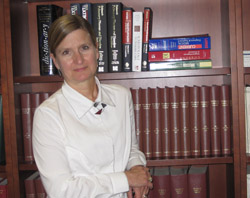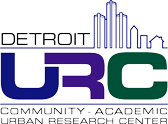URC Network members engage underserved communities in setting health-research priorities
Detroit URC Network members will use a $2.8 million National Institutes of Health grant to connect underrepresented communities with health scientists to improve health research priorities. Led by Susan Dorr Gold, MD, MHSA, MA Professor of Internal Medicine and Health Management and Policy in the University of Michigan Medical School and School of Public Health and Zachary Rowe, Director of Friends of Parkside and founding member of the Detroit URC, the study will allow minority and underserved communities to be involved in the health research decision-making process through simulation exercises and deliberations.

The study will develop and evaluate a new version of an existing exercise calledCHAT, or Choosing Healthplans All Together, a U-M created program that engages the public in setting health care priorities. The new version (ReCHAT) will engage communities in deliberations about health research priorities.
Researchers hope the results will offer them valuable information that will be relevant for funders and policy makers at research institutions.
The study also will look at issues surrounding health research deliberation, and if community groups’ involvement in this process increases their knowledge about research, trust toward researchers or their willingness to participate in research.
The final stage of this project involves analyzing how policymakers use community groups’ input. The researchers have commitments from multiple health research supporters in Michigan to use the results to inform their priorities.
Goold says engaging communities could increase public trust in research institutions. However, if their input does not influence policy, the public could respond with distrust and cynicism, she says.
“Successful development of a method to engage communities in health research priority setting has the potential for enormous impact,” Goold says. “It could make research funding decisions more just and more aligned with community needs and values.”
Partners: Friends of Parkside, Detroit Community-Academic Urban Research Center



